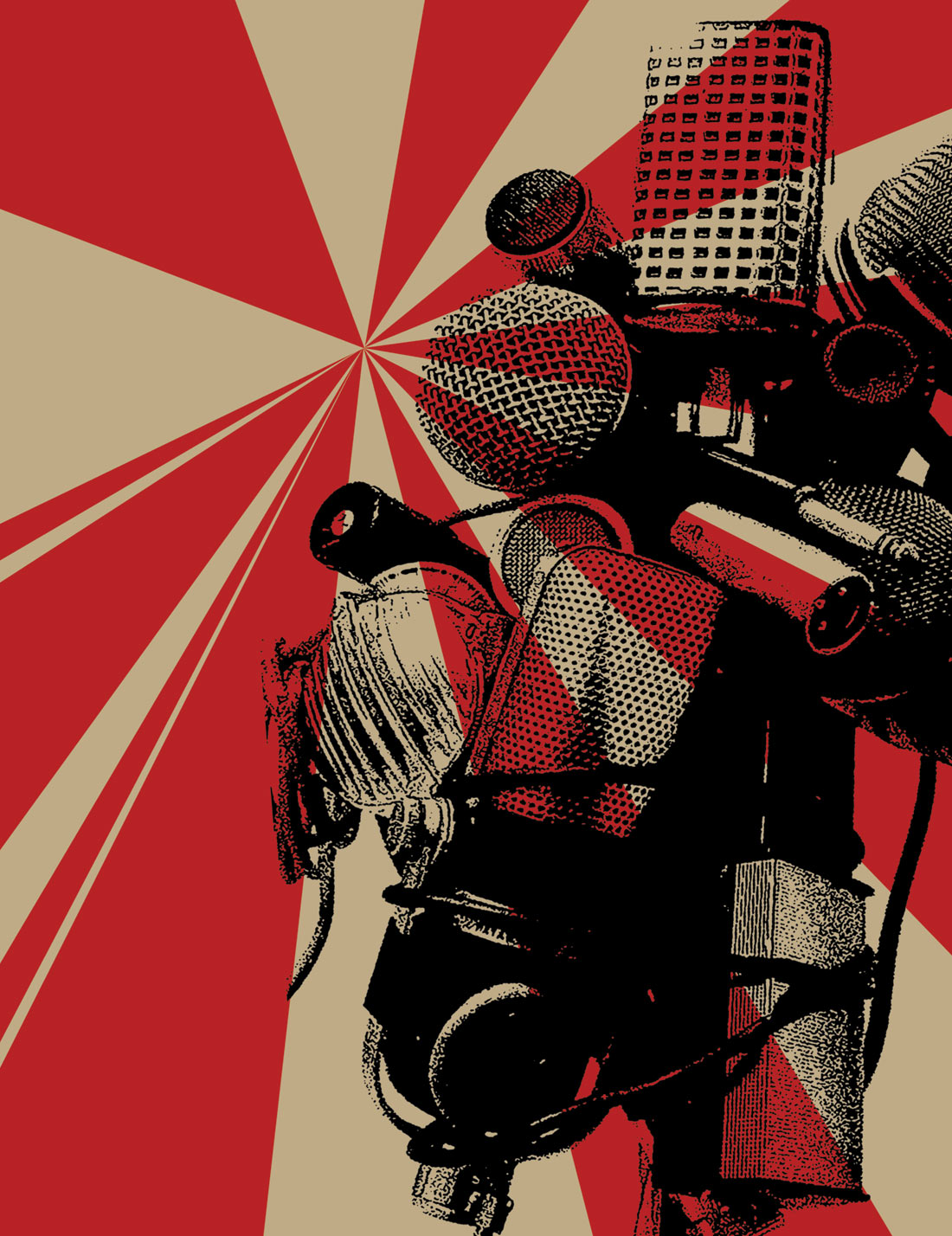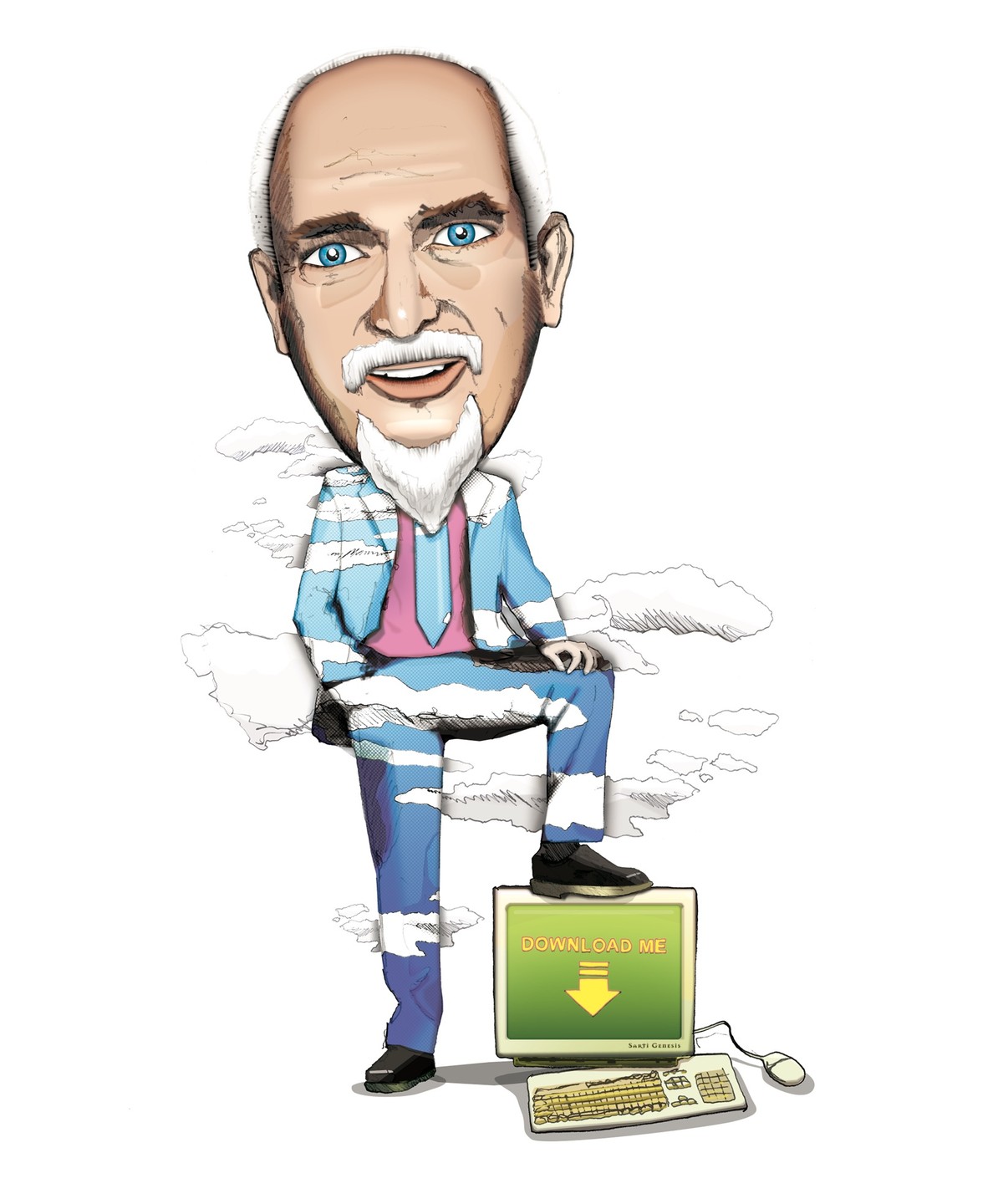I recently had the chance to interview one of my favorite musician/studio owners, Peter Gabriel. The situation involved me and three other writers sitting in a wooden shed with an SSL AWS 900+ console at one end, in the middle of the trade show floor at the NYC AES event. Ostensibly Peter was there as co-owner of Solid State Logic, as well as promoting the inspiration behind this "purchase a shed and console and SSL will build it in your yard" product, but we couldn't resist asking Peter his thoughts on studios and the future of the music world. We're pestering Peter for an in-depth interview, but for now enjoy these thoughts. -LC
New Music World
When I'm out of my contract with EMI in the UK I think it's going to be a lot easier to open up the process and bring stuff out when it feels right rather than being pressed to release an album. There's all sorts of flexibility on the Internet that people are exploiting. The economic model changes a hundredfold. For example, The Incredible String Band wanted to come and record at our studio and they didn't have the budget for it, so through the Internet they found 120 fans who would pay sixty pounds each for a ticket to come and watch one of their favorite artists make an album. With that they had money to buy something like a week in one of our rooms — it was the big room so it could house all the people — and they filmed it and then had not only an album but a web broadcast. The old economic model was obviously a record company needs to reach a hundred thousand people or something before they're going to give the funding. I know now a lot of bands are self-sustaining. But what that new economic model should do is transform the nature of the music made. In other words, a lot of experimental things, collaborations, that were not viable because no one thought they were going to sell anything are now feasible to create. As long as you find a small number of people who are going to be interested in that particular album it should be possible to do it. That sort of Renaissance I don't think has happened yet and I hope it does.
Radiohead's "Pay What You Want"
I think they [Radiohead] particularly have loyal and dedicated fans — which I'm one — who wouldn't want to feel that they were cheating their artist and who I think would be slightly more embarrassed about ripping off their artist than they were when they just thought they were ripping off the record company. If that model works then I think they've done music a huge service. The only thing I would say counter to that is when I was a big fan of the White Bicycle experiment [White Bicycle Plan, 1964] in Amsterdam where the city bought hundreds of thousands of bicycles that they painted white and left around the city. The first two or three months were brilliant. Everybody took the bikes from place to place — just picked them up and off they went. Come summertime a few guys said, "Hey, there's an opportunity here." These vans and trucks come in and the bicycles disappeared. I actually think there is a way to bring that back again but it requires a lot of people — it's an employment solution as well — where we'll have human-guarded bicycle parks. You still probably need to be able to have some little GPS thing embedded in the bike but you should be able to set an alarm where if the GPS thing goes off if it goes out of city limits. That would be a correct application of technology and a little more employment for people and you're on to a winner. I think then a lot of people would go for it and maintain the bikes. We have another interest in a thing called We7 and I was trying to get free music by seeing if people would tolerate about seven seconds of ad, and the ad will disintegrate after four to six weeks depending on the music. You do get it for free and if you don't listen to it for six weeks then you don't hear it — you get it totally free. I think a lot of people are trying different models and I think if there was something that allows consumers to get free music or they can pay to get it ad free. The advertiser gets targeted advertising. For instance, if I'm looking for a hybrid car at that time I'll tolerate ads telling me who's got hybrid cars and what they do at that moment. If you volunteer information, and you're comfortable with that, then you get usefully targeted advertising. The advertiser will get closer to people who are actually interested in what they are sell and then musicians get paid, which is the bit that I like.
Recording on computers.
The range of things you can do, the choices you have, the colors you can paint with — those are fantastic things. The fact that it's democratized — anyone with a PC is in the music business if they want. That's a fantastic thing. If you're asked to generate a melody and someone presses the red light and you're in with a group of musicians improvising and then you're asked to slowly paint a melody — analyze each note and every parameter that you're going to give them, you'll end up with two different things. They both have their very real strengths. I think there is stuff from a red light, Zen analog world that people can do in a digital world but they don't always push themselves to perform and use that part of their creative energy. I think a smart system is one that takes the best from both worlds and weaves them together. I think with consoles that are trying to integrate analog and digital that is a similar sort of philosophy.
The World:
There's a project that I got involved in with, theelders.org. I managed to get some friends involved and to get Nelson Mandela to found it and got people like Kofi Annan, Desmond Tutu, Mary Robinson, Jimmy Carter involved also — there's an amazing group here. It's an attempt to try and build a community that connects young people with energy and idealism — but without much real power in the world — with people who are past all that but still have the respect of the world. Hopefully their wisdom and power can be based not on military, political, and economic power, but just on the respect that they've earned from the world. So we're trying to see if we can connect the two together. Some of the issues that they want to look at are Darfur and Burma. It could be through videotape technology. It could be in new ways of thinking. It could be certain NGOs. In a way you've seen what the Internet has done to an encyclopedia with Wikipedia, to broadcasting with YouTube. We haven't yet seen what the Internet can do to politics and I'm hopeful The Elders can be part of that process.


